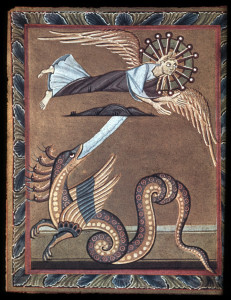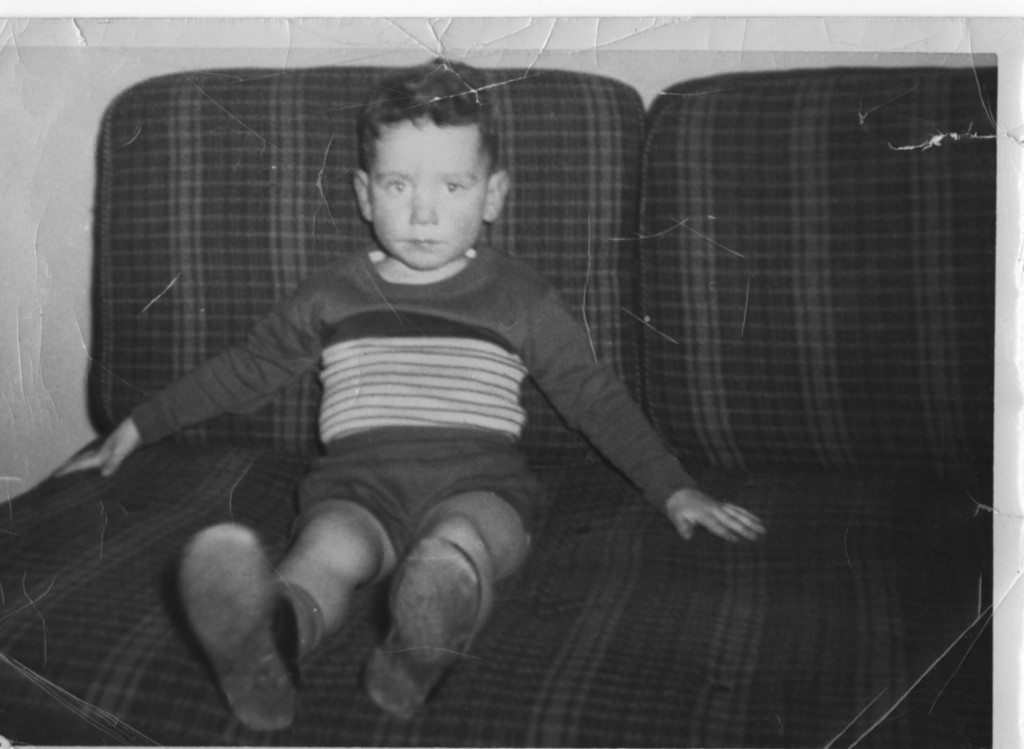Obedience-Based Education
THE INTERESTING STORY of my husband’s eighth-grade teacher was never completely told here even though I promised to continue his account. I apologize for the long, long delay.
I’m going to repeat the first part today and then pick up where we left off on Thursday. The whole series Tales of Chester can be found here.
****
“This place,” she would snarl day after day, morning and afternoon, pausing to grit her teeth and bunch her pleated black habit in two clawed fists. “I can’t wait to get out of this place.”
This was our eighth-grade nun at St. Michael’s School, and it was a refrain we would keep with us the rest of our lives. Compared with our experiences in the first seven grades and with other nuns, her behavior was shocking and left us with an overwhelming sense that something had gone terribly wrong in her life – and our’s.
Watching the dissolution of an important authority figure was unsettling and challenged a truth we held to be beyond self-evident: Sister does it, therefore it is right. It was so hard for us to believe that this was happening at St. Michael’s, the neighborhood’s axis of order, that we didn’t believe it.
Although it was a close call, the Catholic Church was the only institution more powerful than the Republican Party. In that era it was impossible to overrate the pull of the parish, the axis upon which everything else rotated. St. Michael’s Church was the cathedral of Chester. God couldn’t have had a better house, with its immense stained glass, marble altars, stately organ and palatial heights. The priests were celebrities. They drove black cars and smoked cigars, except for Father Higgins, the pastor. They lived in a sumptuous rectory with a housekeeper who cooked all their meals and screened all visitors.
It was the downtown parish, the one frequented by businessmen and the mayor. The church was always open. No religion or denomination on earth could match the Catholics for quantities or services, or fund-raising activities, and St. Michael’s had more than most: Masses, novenas, benedictions, processions, bingos, card parties, Communion breakfasts, block collections, the works.
Like Renner’s house among the humble homes of Madison Street, the grandeur of St. Michael’s, a cathedral in all but name, was out of scale with downtown Chester. The gilded cross atop the 180-foot stone tower and spire, was by far the closest object to the heavens above. The solemn stone facade was an elegant evocation of the late Middle Ages among the otherwise prosaic and unassuming buildings that housed the shops in the business district. No one escaped the influence of the church, named for the Archangel who was chairman of the joint chiefs of staff in the war against the bad angels. A 30-foot mural to the left of the altar depicted St. Michael, his foot on Satan’s throat, downwardly thrusting a spear into the Satanic stomach.
Renner’s house was a mystical mansion; St. Michael’s, a mystical kingdom. A corridor of statuary overlooked perfectly varnished, sumptuous pews. The stained-glass windows depicted complicated scenes in detail that belied the limits of the medium: Jesus changing water to wine at Canaan, the fingers of the miraculous hand visible; Jesus walking on water, down to the sacred toenails; Jesus ascending to Heaven, through the rounded perimeters of cumulus clouds. The scenes were emblazoned to life when the sunlight animated the south-facing windows. The original church was built at the behest of Irish stoneworkers and completed in 1843. When the milling industry, along with the immigrant population, exploded, the congregation jumped eight-fold, and construction of the new church began in 1874.
From the choir loft on the Wednesday nights of the Lenten novenas, we could hear Joe Hoffman’s amplified voice intoning “I-29” to the blue-headed bingo ladies frantically scanning their multiple cards in the church basement. Everyone, including the children, was expected to give to the Sunday collections, even the poor people, of which there were many. Everyone in the house received packages of coded and colored envelopes for each Sunday, each with an identification number in the upper left-hand corner. At the end of the year, the parish published a list, ranked by contribution total, of what everyone had given during the calendar year. If you gave 25 cents, that’s what appeared next to your name.
This increased the pressure to give, obviously. Parents had to stuff their own and their children’s envelopes to prevent public embarrassment. Children were expected to give a quarter a week, $1 to $5 on Christmas and Easter, so that at the end of the year, $15 would be an acceptable total. The system also raised the stakes for the major benefactors. The two funeral directors, George White and Johnny Clancy, maintained a brisk competition. Both were church regulars. Clancy looked appropriately corpse-like, and White had a magnificently luminous bald head that seemed to be covered with skin-colored patent leather. Both typically would put in $300 – or about $2,000 at today’s rates – on Christmas and Easter alone.
Almost every family sent the children to St. Michael’s school, where arithmetic, grammar, the seven gifts of the Holy Ghost and the Apostles’ Creed were branded into your soul before you knew you had one. We looked down on the kids who went to Larkin School, where they were allowed to wear play clothes and walked back and forth to school any which way. We wore jackets and ties and stayed in line on the way home.
We were held to a higher standard of discipline, and, we imagined, academic expectations. Parents didn’t question the nuns or the curriculum, and corporal punishment was accepted, if not encouraged. We complained, but we were proud of it all.
The popular images of nuns, including the legends we perpetuate in our family, are mere caricatures. We never called them “nuns,” a word that suggested a secular, if not pejorative, categorization. They were “Sisters,” and what they did was quite remarkable. They had their complexities and nuances. They were not all holy terrors, at least on most days. (more…)








